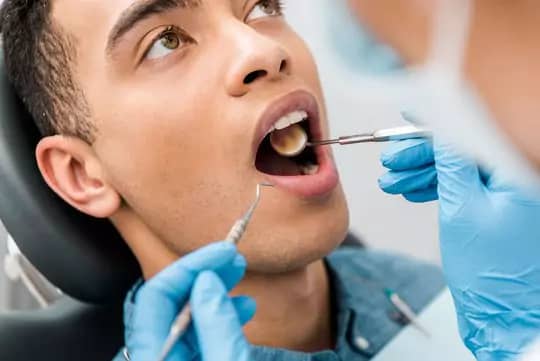Understanding Dentophobia
What Is Dentophobia?
Dentophobia is the fear of dentists and dental procedures. This phobia can range from mild anxiety to severe fear and panic, leading individuals to avoid dental care altogether. The consequences of untreated dental issues can be severe, affecting overall health and quality of life.
Causes of Dentophobia
Several factors can contribute to the development of dentophobia:
- Past Traumatic Experiences: Negative experiences during previous dental visits, such as pain or discomfort, can lead to lasting fear.
- Fear of Pain: Many people fear dental procedures will be painful, especially if they have experienced pain.
- Needle Phobia: Fear of needles (trypanophobia) can make dental visits particularly daunting since injections are often used for anesthesia.
- Loss of Control: Sitting in a dental chair with someone working inside your mouth can feel invasive and lead to a sense of helplessness.
- Embarrassment: Poor oral health and the state of one’s teeth can cause embarrassment, leading to avoidance of dental experts.
Symptoms of Dentophobia
Symptoms of dentophobia can vary in intensity and may include:
- Physical Symptoms: Rapid heartbeat, sweating, nausea, difficulty breathing, and faintness.
- Emotional Symptoms: Intense fear or panic, dread at visiting the dentist, and feelings of helplessness.
- Behavioral Symptoms: Avoid dental appointments, trouble sleeping before a visit, and irritability.
Strategies to Prevent and Manage Dental Fear
Overcoming dentophobia is crucial for maintaining good oral health. Here are some effective strategies to help manage and prevent dental fear:
- Find a Supportive Dentist
It is crucial to choose a dentist who understands and empathizes with your fears. Look for recommendations from friends or family, read online reviews, and schedule an initial consultation to discuss your concerns without committing to procedures.
- Communicate Your Fears
Openly discuss your fears with your dentist and dental staff. A good dentist will explain procedures in detail, answer your questions, and use techniques to make you feel more comfortable. Establishing a signal, such as raising your hand, can give you control over taking breaks during treatment.
- Use Relaxation Techniques
Practicing relaxation techniques such as deep breathing, meditation, or visualization can help reduce anxiety. These methods can calm your mind and body, making dental visits less stressful. Visualization involves imagining a peaceful place or situation to distract from the dental procedure.
- Consider Sedation
Sedation dentistry can be an effective solution for severe cases of dentophobia. Options range from mild sedatives like nitrous oxide (laughing gas) to oral sedatives or even general anesthesia. Discuss these options with your dentist to find the best approach for you.
- Gradual Exposure
Gradual exposure to dental care can help desensitize you to the fear. Start with simple, non-invasive visits, such as consultations or cleanings, and gradually progress to more involved procedures as your comfort level increases. This method, known as exposure therapy, is effective for many phobias.
- Bring a Support Person
Having a trusted friend or family member accompany you to your appointment can provide emotional support and comfort. Some dental offices even offer therapy pets to help calm anxious patients.
- Distraction Techniques
Distracting yourself during dental procedures can help you forget about the fear. Listening to music, watching videos, or focusing on a stress ball can make the experience more bearable.

- Maintain Good Oral Hygiene
Regularly caring for your teeth can reduce the need for more invasive dental procedures, which can be a significant source of fear. Brushing, flossing, and regular dental check-ups help prevent issues like cavities and gum disease.
- Seek Professional Help
If your dentophobia is severe, consider seeking help from a mental health professional. Cognitive-behavioral therapy (CBT) is particularly effective for phobias, helping you change negative thought patterns and develop coping strategies.
- Education and Preparation
Educate yourself about dental procedures and what to expect during a visit. Understanding the process can demystify dental care and reduce fear. Ask your dentist to explain the steps involved in any procedure you might need.
Conclusion
Dentophobia is a common but manageable condition. By understanding the causes and symptoms of dental fear and employing effective strategies to cope with it, you can take control of your oral health. Remember, regular dental care is crucial for maintaining overall health and well-being. With the proper support and techniques, you can overcome dentophobia and ensure a healthy, confident smile.

